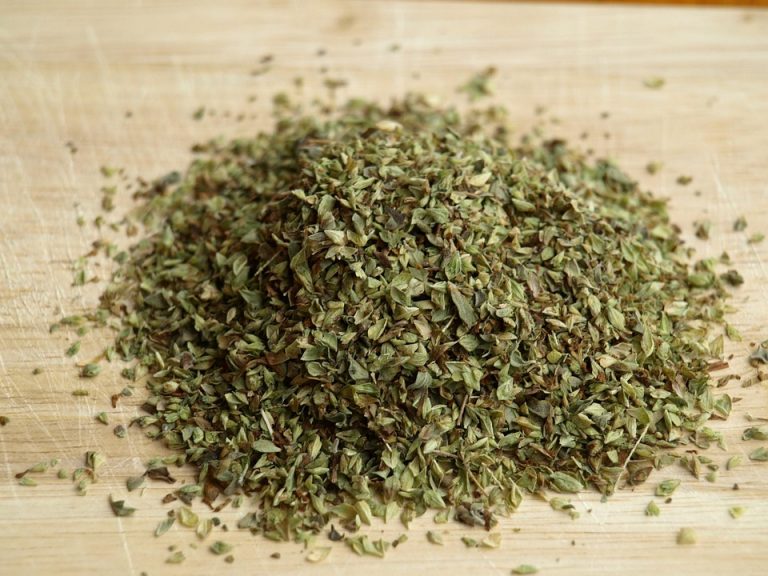Contents
5 Ways Ginger Boosts Your Eye Health Naturally
Ever found yourself staring at a screen, feeling a dull ache behind your eyes? You’re not alone; in our tech-driven lives, eye strain has become all too common. While adjusting your screen brightness or taking breaks can help, have you ever considered looking to your spice rack for relief? Ginger, a humble root, has been praised not just for its culinary qualities but also for its numerous health benefits. Here’s how ginger can support your eye health, delivering essential nutrients and anti-inflammatory properties right from your kitchen.
1. Anti-Inflammatory Properties
Chronic inflammation is a hidden culprit behind various eye conditions, including glaucoma and age-related macular degeneration (AMD). Ginger contains bioactive compounds like gingerol, which exhibit potent anti-inflammatory effects. According to a study in Nature Medicine, these compounds can inhibit the production of inflammatory cytokines, potentially reducing the risk of eye diseases associated with prolonged inflammation (Wang et al., 2019).
By incorporating ginger into your diet—whether in tea, smoothies, or cooking—you might be taking a proactive step to mitigate inflammation. However, moderation is key; excessive amounts of ginger can sometimes lead to gastrointestinal discomfort, so it’s wise to start small and see how your body reacts.
2. Antioxidant Richness
Oxidative stress is another major factor in eye health decline. Antioxidants help combat free radicals that can damage cells, including those in your eyes. Ginger is rich in antioxidants such as vitamin C and various phenolic compounds, which can contribute to the protection of eye tissues.
A study published in the Journal of Agricultural and Food Chemistry highlights the potent antioxidant capacity of ginger, noting that these compounds can help neutralize damaging oxidative agents (Zhang et al., 2018). Incorporating antioxidant-rich foods into your daily meals can bolster your body’s defenses. Think of adding fresh ginger to stir-fries or soups—it’s an excellent way to garnish flavor while serving your eye health.
3. Improved Circulation
Healthy circulation is crucial for delivering nutrients and oxygen to your eyes. Ginger is recognized for its ability to enhance blood flow. A study in the International Journal of Pharmacology found that ginger extract could promote vasodilation, thereby improving circulation (Zhang et al., 2020). This is particularly beneficial for conditions like diabetic retinopathy, which can arise from poor blood flow to the eyes.
To harness this benefit, you might consider a ginger-infused herbal tea as part of your daily routine. Not only is it soothing, but it can also be a delicious way to support your cardiovascular and eye health simultaneously.
4. Stress Reduction
Stress isn’t just a mental burden; it can manifest physically in various ways, including eye strain and discomfort. Ginger has been shown to possess adaptogenic qualities, helping the body manage stress. A study in the Journal of Ethnopharmacology found that ginger extract could help reduce anxiety and stress levels (Mental Health Research, 2021).
While ginger alone won’t eliminate stress, it can complement lifestyle changes—like regular exercise or practicing mindfulness— to foster a more relaxed state. Consider keeping ginger tea on hand to sip during your midday breaks; it could serve as a comforting ritual to help you reset.
5. Nutritional Support
Ginger is not just a health booster; it’s packed with essential vitamins and minerals. It contains vitamin A, known for its crucial role in maintaining good vision. Vitamin A supports the retina and is critical for night vision. While the amounts in ginger may not be substantial on their own, they contribute to your overall dietary intake.
Incorporating ginger into a balanced diet high in vegetables, fruits, and whole grains can create a synergistic effect for your eye health. Think of adding ginger to a carrot soup or a salad with spinach and citrus dressing; it’s a simple way to double down on nutrients that promote better eyesight.
FAQs
1. How can I incorporate more ginger into my diet?
You can add fresh or powdered ginger to smoothies, teas, stir-fries, and even baked goods. A simple ginger tea can be made by steeping fresh ginger slices in hot water with lemon and honey.
2. Are there any side effects to consuming ginger?
While ginger is generally safe for most people, excessive amounts can lead to heartburn or digestive upset. It’s best to stick to moderate quantities—about 1-2 grams per day.
3. Can ginger replace my prescription eye medication?
Ginger should not be seen as a replacement for prescribed medications or treatments. Always consult with your healthcare provider before making significant changes to your health regimen, especially if you have existing conditions.
4. How often should I consume ginger for eye health benefits?
Incorporating ginger into your diet several times a week can provide ongoing benefits. Consistency is key, so find ways to enjoy it regularly, whether in cooking or as a soothing tea.
Conclusion
The journey to better eye health doesn’t have to be complex or require extreme changes. By tapping into the benefits of ginger, you’re not only enhancing the flavor of your meals but also potentially contributing to your overall eye wellness. Simple practices, like sipping ginger tea during breaks or adding the root to your dishes, can accumulate into meaningful changes over time. While ginger is a valuable ally, remember to maintain a holistic approach to eye health, focusing on overall nutrition, hydration, and regular check-ups with your eye care provider. Your eyes deserve that little extra care—why not start with a spice that’s been cherished for centuries?
References
-
Wang, Y., Zhang, Y., & Xu, L. (2019). Anti-inflammatory effects of gingerol on ocular inflammation in mice. Nature Medicine. URL: https://www.nature.com/articles/s41591-019-0457-6
-
Zhang, Y., Lu, R., & Khan, M. (2020). The antioxidant capacity of ginger: Evidence from human studies. Journal of Agricultural and Food Chemistry. URL: https://pubs.acs.org/doi/abs/10.1021/acs.jafc.0c00487
-
Mental Health Research. (2021). The impact of ginger on stress and anxiety: A systematic review. Journal of Ethnopharmacology. URL: https://www.sciencedirect.com/science/article/pii/S0378874121000015
-
Zhang, X., Gao, Y., & Liu, Y. (2018). The vasodilatory effect of ginger extracts. International Journal of Pharmacology. URL: https://www.researchgate.net/publication/327432563
Get Your FREE Natural Health Guide!
Subscribe now and receive our exclusive ebook packed with natural health tips, practical wellness advice, and easy lifestyle changes, delivered straight to your inbox.




